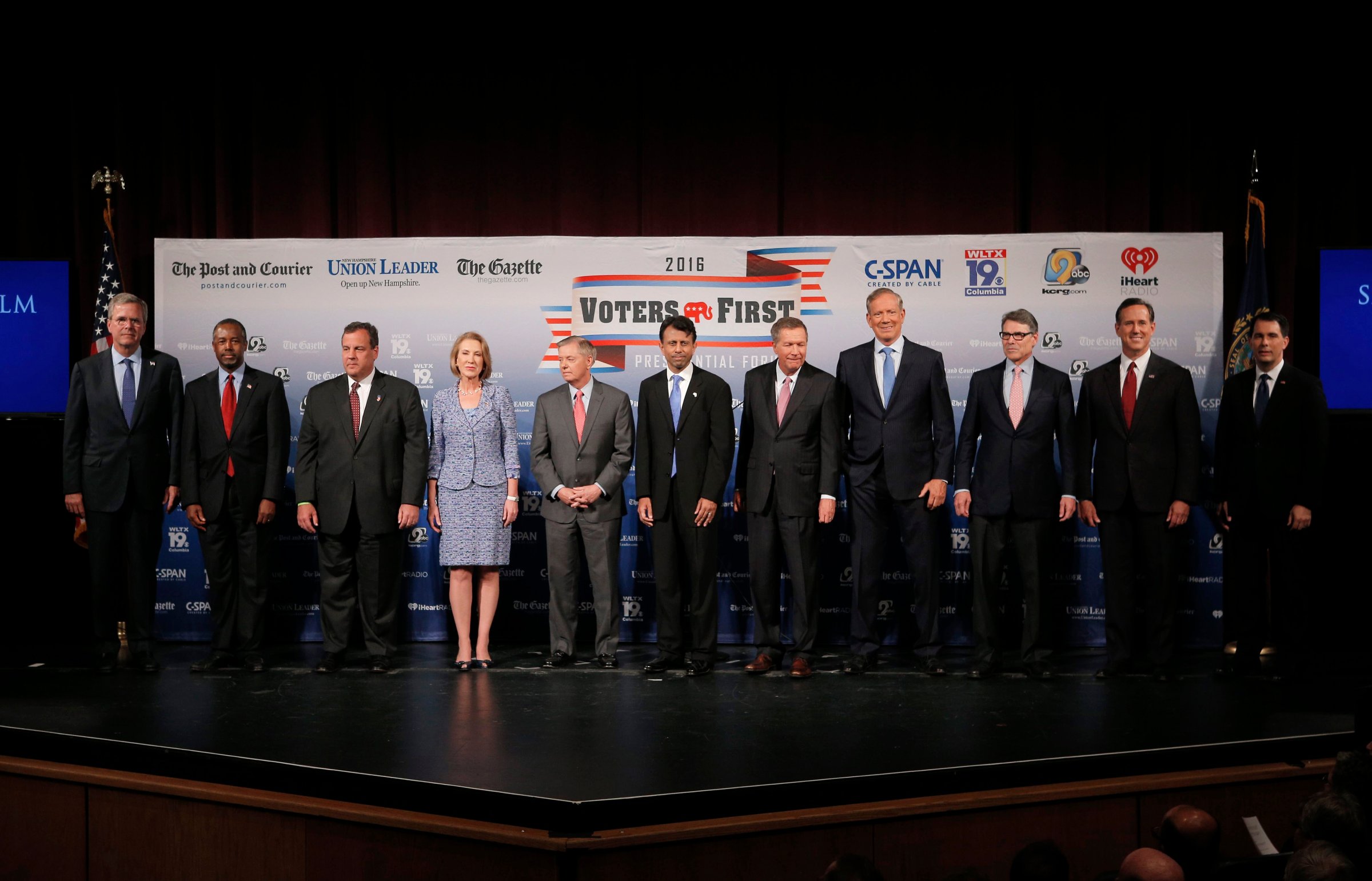
Republican Party Chairman Reince Priebus set about reforming the debating process for the GOP nomination more than two years ago. His goal: to prevent a repeat of 2012’s 23 debates—which promoted party infighting and left its ultimate standard-bearer battered. “Our debates will be good for our candidates and for voters—not a field day for the media,” Priebus told members of the Republican National Committee last year in Chicago.
Monday’s “Voters First” forum in New Hampshire is the clearest indication that Priebus has largely succeeded in that goal thus-far—at least as far as candidates are concerned.
The bloodless two-hour event featured two-rounds of questioning of the candidates, almost entirely geared to each candidates’ strengths and stump-speeches. Lindsey Graham got foreign policy questions, just as Rick Perry was asked about immigration and John Kasich got questions no the budget. There was little interaction between candidates, other than the occasional shout-out that someone was their “friend.” Voters tuning in—and there were few, as it was only broadcast on C-SPAN and local television in a few early voting states—would have heard little new. Searching for scraps, the most news to be found were a pair of candidates (Kasich and Rubio) avoiding using the terms “path to citizenship” in their answers on immigration reform, an uneven and awkward answer by former Florida Gov. Jeb Bush about his brother and father, and New Jersey Gov. Chris Christie jostling with the moderator about being “washed-up” as a candidate.
Squeezing 14 candidates in such a small time frame left the forum feeling like watching televised speed dating, in which candidates practiced their well-honed pick-up lines. While each had their turn in the hot-seat, the rest of the assembled field watched from the front row of the theater chairs at St. Anselm College in Manchester, N.H. Making the setting more awkward, Rubio, Sen. Rand Paul, and Sen. Ted Cruz all participated remotely from Washington due to votes on the Senate floor.
The most contentious questions came to Paul over his foreign policy and domestic surveillance positions—not as softball as the rest, but beliefs he is well practiced in defending.
Indeed, the forum was virtually indistinguishable from every other candidate cattle-call over the last 18 months, other than the fact it took speeches were usually given over two or three days and condensed them into two hours. But the bland spectacle was nonetheless a win for the Republican Party, which hopes to focus the nation’s attention on the first official Republican debate in Cleaveland on Thursday, which will be hosted by Fox News anchors Megyn Kelly, Bret Baier, and Chris Wallace
Thursday night will be different, not least because Donald Trump will be on stage, and the candidates will be able to interact with each other, cutting off or criticizing their rivals as they go. The New York real estate mogul skipped the event Monday in protest of critical editorials in the New Hampshire Union Leader, the principal organizer.
Trump, the leader in the national polls determining who qualifies, will be center-stage, flanked by Bush and Wisconsin Gov. Scott Walker and seven other candidates whose oxygen Trump’s rise has largely stolen. Many are out for blood, hoping that in attacking Trump they can boost their own political fortunes. Before the debate, the six candidates who did not break the top-10 in the polls will participate in an undercard debate, which is likely to be as heated, as those candidates vie for a piece of the spotlight from backstage.
It remains to be seen whether Priebus’ plan to keep the debates from damaging the eventual nominee pans out, but so far he has at least managed to tame the never-ending series of forums and at least contained the televised contests to a more manageable number.
More Must-Reads From TIME
- The 100 Most Influential People of 2024
- Coco Gauff Is Playing for Herself Now
- Scenes From Pro-Palestinian Encampments Across U.S. Universities
- 6 Compliments That Land Every Time
- If You're Dating Right Now , You're Brave: Column
- The AI That Could Heal a Divided Internet
- Fallout Is a Brilliant Model for the Future of Video Game Adaptations
- Want Weekly Recs on What to Watch, Read, and More? Sign Up for Worth Your Time
Contact us at letters@time.com